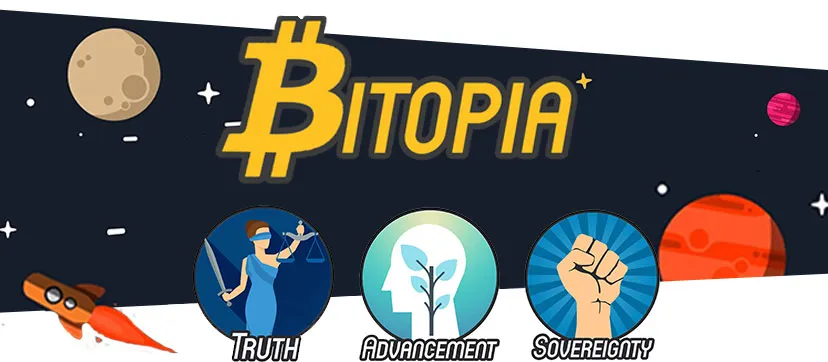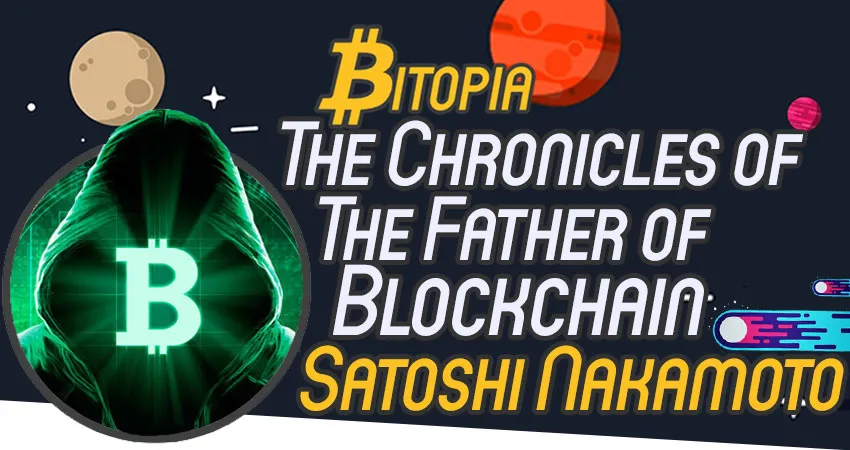
In writing my earlier post about Satoshi Nakamoto, something spurred within me. A motivation to dig deeper into the history of how the entire story of Satoshi Nakamoto conspired.
I mean, who doesn’t love a good mystical crypto-conspiracy?
Much less about one entity, that only through the use of text and code, would bring the world the coveted Bitcoin and Blockchain Technology along with it.
To usher in a completely revolutionary frontier technology. In just 9 years since, is taking the world by storm and utterly disrupting entire governments and the financial system. Spawning a completely new and revolutionary industry, with vast implementations after the fact, on virtually every major industry.
Before disappearing to the wind, never to heard from ever again.
The story I learned, was so great, that it simply had to be told. However, there was so much out there. To give this story any justice I'd have to find out every single detail and have a full picture.
So that's just what I did.
In preparation of writing this piece, I scoured the internet for every piece of information I could find about Satoshi Nakamoto I could find.
Starting with ground zero, the point where the spark of this immense revolution the Blockchain Bible if you will, the Bitcoin Whitepaper.
Then on to the Nakamoto Institute to consume every word ever written by Satoshi. Lastly, to learn of the history of happenings between when he appeared till the point that he disappeared.
I then went on, to read every relevant story ever written about him, then on to every relevant comment made about him, in an effort to see the full picture to best write this piece thoroughly.
It took me 5 days to go through every relevant piece of information, and to craft this post. It was quite the challenge, having to compound all of the most important facts and quotes made to best tell the entire story. Overall, I definitely feel I gave it my best shot.
It was a great learning experience, and absolutely enthralled by the history of Blockchain technology but I come out the other side more invigorated than ever to participate and continue add value to the Blockchain community.
I bring you, this deep dive, into everything we know about Satoshi Nakamoto.
The Father of Blockchain.
Inception of Greatness : The Very Beginning

1st of November, 2008, email sent out to “The Cryptography Mailing List”
I've been working on a new electronic cash system that's fully
peer-to-peer, with no trusted third party.
Bitcoin: A Peer-to-Peer Electronic Cash System
The main properties:
Double-spending is prevented with a peer-to-peer network.
No mint or other trusted parties.
Participants can be anonymous.
Abstract. A purely peer-to-peer version of electronic cash would
allow online payments to be sent directly from one party to another
without the burdens of going through a financial institution.
Digital signatures provide part of the solution, but the main
benefits are lost if a trusted party is still required to prevent
double-spending. We propose a solution to the double-spending
problem using a peer-to-peer network.
Satoshi Nakamoto
This was the very first time anyone had heard from Satoshi Nakamoto.
No one, not even the veterans on the “The Cryptography Mailing List” had ever heard the name Satoshi Nakamoto.
The Bitcoin whitepaper however, was too good to ignore.
Within the simple 9-page PDF, outlined the solution to Electronic Cash which had never been done before. The solving of the “Double Spending Problem”.
What is the “Double Spending Problem”?
The “Double Spending Problem” first arose in the 1990’s during the Dot Com boom. Tech developers and cryptographers alike found that the key to having a digital currency, they would first have to solve the “Double Spending Problem”.
As the currency is digital, the problem was that any currency released, can be simply copied over and over, which will immediately devalue the currency to nothing, almost instantly after it is released.
How did Satoshi Nakamoto solved the “Double-Spending Problem”?
Enter, the Blockchain.
Outlined in Satoshi Nakamoto’s Whitepaper, a Proof-of-Work mechanism, which upon launching, created the first ever Blockchain, the Bitcoin Blockchain.
Which works like this:
- Someone requests a transaction
- The transaction is broadcasted to the Bitcoin network
- A network of computers called ‘Nodes’ validates the transaction
- Transaction is verified, is combined with other transactions to create a ‘Block’ of transactions
- The ‘Block’ is added to a public ledger of existing older Blocks, creating a chain.
- Once the ‘Block’ is added to the ‘Chain’, the transaction is verified and completed.
While also, creating what we now know as the ‘Blockchain’.
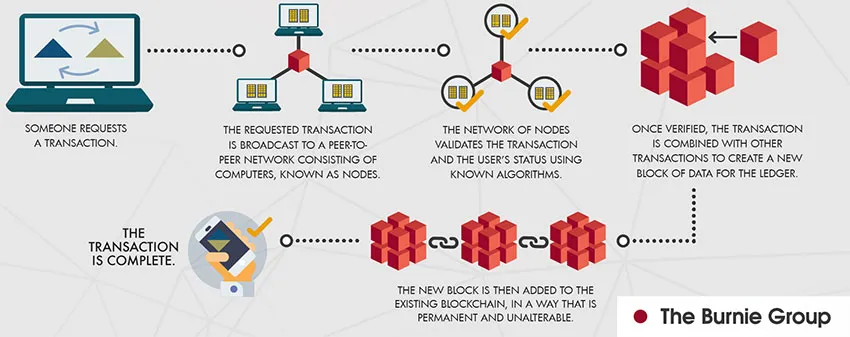
(img : Burnie Group)
By having every transaction, first and foremost, be published on a public ledger, and given that a new block that wants to be added to the Blockchain that contains a duplicate transaction, it will be denied by the Blockchain.

Execution of Greatness : Build It and They Will Come
As any entrepreneur can tell you, having a great idea is good, executing it accordingly is where the proverbial “Money is Made”.
Somehow seems extremely fitting to the actual process of “Creating Money” in this context.
After releasing the Bitcoin Whitepaper, Satoshi went on to expertly answer responses to the email, most of which were technical.
While also shedding some light behind the creation of Bitcoin.
For one, it took him one and a half years to code.
I believe I've worked through all those little details over the
last year and a half while coding it, and there were a lot of them.
I had to write all the code before I could convince myself that I could solve every
problem, then I wrote the paper.
In Response to : “You will not find a solution to political problems in cryptography.”
Yes, but we can win a major battle in the arms race and gain a new territory of
freedom for several years.
Governments are good at cutting off the heads of a centrally controlled
networks like Napster, but pure P2P networks like Gnutella and Tor seem to be
holding their own.
38 days after publishing the Bitcoin Whitepaper, Satoshi announced the release of Bitcoin v0.1’s Blockchain and invited anyone to begin mining Bitcoins.
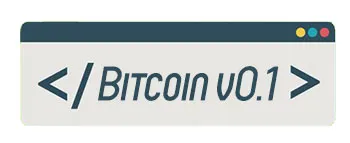
Satoshi Nakamoto, 1st September, 2009 :
Announcing the first release of Bitcoin, a new electronic cash
system that uses a peer-to-peer network to prevent double-spending.
It's completely decentralized with no server or central authority.
The software is still alpha and experimental. There's no guarantee
the system's state won't have to be restarted at some point if it
becomes necessary
You can get coins by getting someone to send you some, or turn on
Options->Generate Coins to run a node and generate blocks. I made
the proof-of-work difficulty ridiculously easy to start with, so
for a little while in the beginning a typical PC will be able to
generate coins in just a few hours.
As a gauge of really how easy it was to mine at that point, someone on bitcointalk forum shed some light.
Bitcoin Oz:
I mined about 200btc with a pentium 4 pc in a couple of days.
WE HAVE TO GO BACK

One Dustin D. Trammell, seemed to get the point of Bitcoin straight off the bat
On the launch day of Bitcoin v0.1, Dustin wrote:
You know, I think there were a lot more people interested in the 90's, but after more than a decade of failed Trusted Third Party based systems(Digicash, etc), they see it as a lost cause. I hope they can make the distinction that this is the first time I know of that we're trying a non-trust-based system.
Satoshi replied :
I would be surprised if 10 years from now we're not using
electronic currency in some way, now that we know a way to do it
that won't inevitably get dumbed down when the trusted third party
gets cold feet.
Hal Finney:
If POW tokens do become useful, and especially if they become money, machines will no longer sit idle. Users will expect their computers to be earning them money (assuming the reward is greater than the cost to operate). A computer whose earnings are being stolen by a botnet will be more noticeable to its owner than is the case today, hence we might expect that in that world, users will work harder to maintain their computers and clean them of botnet infestations.
And he couldn’t have been more right though, to what extent, he may not have been able to predict.
Bitopia covered this subject just last week:
Fanning The Embers or Disruption : Rallying Call
22nd November, 2009
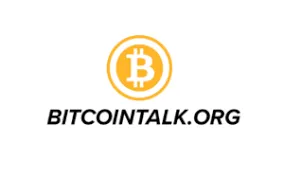
Satoshi launched Bitcointalk.org and began actively engaging forum users, onboarding them onto Bitcoin wallets, Mining Bitcoins, answering questions and giving updates as he continuously worked upon coding Bitcoin further, fixing bugs and working on new implementations.
I went through every single post Satoshi made on the Bitcointalk.org forum in preparation of this post, seeking out some gems of Satoshi’s writing, omitting the technical aspects and general onboarding of people.
NOTE : These quotes are not arranged in chronological order, rather in segments of subjects, all of which at different times.
Satoshi highlighting the root problem with Fiat currency and the essence of why Bitcoin was created :
The root problem with conventional currency is all the trust that's required to make it work. The central bank must be trusted not to debase the currency, but the history of fiat currencies is full of breaches of that trust. Banks must be trusted to hold our money and transfer it electronically, but they lend it out in waves of credit bubbles with barely a fraction in reserve. We have to trust them with our privacy, trust them not to let identity thieves drain our accounts. Their massive overhead costs make micropayments impossible.
A lot of people automatically dismiss e-currency as a lost cause because of all the companies that failed since the 1990's. I hope it's obvious it was only the centrally controlled nature of those systems that doomed them. I think this is the first time we're trying a decentralized, non-trust-based system.
Satoshi explains the “Intrinsic Value” issue with Bitcoin
As a thought experiment, imagine there was a base metal as scarce as gold but with the following properties:
boring grey in colour
not a good conductor of electricity
not particularly strong, but not ductile or easily malleable either
not useful for any practical or ornamental purpose
and one special, magical property:
can be transported over a communications channel
I think the traditional qualifications for money were written with the assumption that there are so many competing objects in the world that are scarce, an object with the automatic bootstrap of intrinsic value will surely win out over those without intrinsic value. But if there were nothing in the world with intrinsic value that could be used as money, only scarce but no intrinsic value, I think people would still take up something. (I'm using the word scarce here to only mean limited potential supply)
If it somehow acquired any value at all for whatever reason, then anyone wanting to transfer wealth over a long distance could buy some, transmit it, and have the recipient sell it.
In this sense, it's more typical of a precious metal. Instead of the supply changing to keep the value the same, the supply is predetermined and the value changes. As the number of users grows, the value per coin increases. It has the potential for a positive feedback loop; as users increase, the value goes up, which could attract more users to take advantage of the increasing value.
On a similar issue, someone asked, why would anyone waste electricity and computing power to mine Bitcoins, considering Bitcoins lack intrinsic value
It's the same situation as gold and gold mining. The marginal cost of gold mining tends to stay near the price of gold. Gold mining is a waste, but that waste is far less than the utility of having gold available as a medium of exchange.
I think the case will be the same for Bitcoin. The utility of the exchanges made possible by Bitcoin will far exceed the cost of electricity used. Therefore, not having Bitcoin would be the net waste.
On the related subject of Bitcoin Mining, he was logical, yet visionary.
We should have a gentleman's agreement to postpone the GPU arms race as long as we can for the good of the network. It's much easier to get new users up to speed if they don't have to worry about GPU drivers and compatibility. It's nice how anyone with just a CPU can compete fairly equally right now.
I anticipate there will never be more than 100K nodes, probably less. It will reach an equilibrium where it's not worth it for more nodes to join in. The rest will be lightweight clients, which could be millions.
At equilibrium size, many nodes will be server farms with one or two network nodes that feed the rest of the farm over a LAN.
In a few decades when the reward gets too small, the transaction fee will become the main compensation for nodes. I'm sure that in 20 years there will either be very large transaction volume or no volume.
Bitcoin generation should end up where it's cheapest. Maybe that will be in cold climates where there's electric heat, where it would be essentially free.
He was right on every account, down to the last point.
With companies like Hydrominer having operations up in the Alps, and Russia taking over Bitcoin mining due to Russia's favorable climate.
On the issue of Bitcoin being lost
Lost coins only make everyone else's coins worth slightly more. Think of it as a donation to everyone.
"natural deflation"... I like that name for it. Yes, there will be natural deflation due to payment mistakes and lost data. Coin creation will eventually get slow enough that it is exceeded by natural deflation and we'll have net deflation.
Those coins can never be recovered, and the total circulation is less. Since the effective circulation is reduced, all the remaining coins are worth slightly more. It's the opposite of when a government prints money and the value of existing money goes down.
What a deflationary currency means for anyone holding them, given that even if the price of Bitcoin stabilizes, the price of Bitcoins will inevitably, rise due to "Natural Deflation".
These quotes I have highlighted here account for less than 0.1% of all text posted by sheer volume of posts made by Satoshi.
That is before accounting for the presumably immense amount of time and effort that the Bitcoin Blockchain required to be built.
That is before the brilliance to actually concoct a system that will, in 9 years disrupt the entire technological, governmental and financial structures.
Not your average day job.
In digging through every single one of Satoshi’s posts, what struck me was the fact that if it were 2010, and I was on Bitcointalk.org conversing with Satoshi, I’d definitely define him as a smart guy, way smarter than I might ever be, sure.
But to think that his impact upon the world would be this powerful, bringing the name Satoshi Nakamoto to almost Godhood status.
I wouldn't have been able to see it then.
He only very rarely ever want into ideology or belief. His work was his belief. Through sheer implementation of a solution did he state his direct opinion on how the world “should be”.
I often praise Elon Musk on that account, after these 5 days of digging into Satoshi, he definitely deserves a spot right next to Elon.
Alas, All Good Things Come To An End : The Kicking of The Hornet’s Nest
On the 10th of November 2010, a thread was created on Bitcointalk.org:

Wikileaks contact info?
Hey,
I wanted to send a letter to Wikileaks about Bitcoin since unfortunately they've had several incidents where their funds have been seized in the past.
http://wikileaks.org/media/support.html
Anyone know where to send a message to them?
This was during the period where Jullian Assange and Wikileaks was being branded a ‘traitor’ by the US Federal Government and was sending the proverbial brigade to seize Assange and to shut down the WikiLeaks website.
One of the ways of doing so, was to cut off any means of WikiLeaks to receive funding and donations.
A user name genjix had created the thread, and was looking to bring attention to Wikileaks, that Wikileaks could receive donations using Bitcoins.
This almost immediately sparked debate within the forum thread.
There were two opinions on the matter.
On one side, part of the community felt the unjust treatment of the US Federal Government upon Jullian Assange and Wikileaks and was in favor of aiding Wikileaks with its means of receiving donations.
One of the most adamant on the subject being a user who was very public about his identity,
Robert S. Horning:
For myself, I'm getting to the point to say "bring it on" in regards to Wikileaks.
It is the morally correct thing to be supporting Wikileaks, and if they'll take a few of my bitcoins, I not only want to donate but to let the world know that they can donate to Wikileaks through Bitcoins as well.
On the other side, many users sentiments was that it was a terrible idea and spelt huge trouble for Bitcoin. Wikileaks would bring way too much government heat on the Bitcoin project. Bitcoin was still very much in it’s infancy and being associated with WikiLeaks would bring way too much attention and maybe even government interference.
Amongst them, was Jeff Garzik:
We know that private and government forces are actively tracing, and trying to shut down, sources of wikileaks funding through all available means of pressure.
Does it make sense to actively give multiple world governments incentive to shut down bitcoin?
No matter how sympathetic wikileaks' cause... if you care about bitcoin's success, the answer is no.
Wikileaks is the enemy of major world powers right now, with many influential elites feeling that Assange committed an act of war against the United States, or, at a minimum, irrevocably disrupted world affairs. This is not some mailing list discussion or theoretical exercise; there are very real, very powerful organizations actively targeting wikileaks' network infrastructure, organizational infrastructure, and most importantly, financial infrastructure.
S3052 :
There is nothing wrong with revealing the truth (i.e. from Wikileaks. In this respect, I like a lot the concept behind Wikileaks).
All I am saying is that it is suicide for bitcoins to connect with Wikileaks today, where many big powers are against.
The time is not ripe yet.
To that, the reponse was:
RHorning:
But seriously, what are the downsides anyway? Do you really think the "Men in Black" are going to shut down Bitcoin? Really? If Bitcoin is that fragile and vulnerable to attack, what are we doing anyway and why is it so consistently being defended?
em3rgentOrdr :
Exactly. I feel the same way. Survival of the fittest. If bitcoin has some fundamental flaw, it will not be able to survive a government attack. Then it is better to weed it out now, so we aren't wasting our time promoting something that will not work, and can instead devote our resources and time to other efforts that hopefully will work and to other currencies to build up the alternative economy.
But before a definitive consensus was made on the subject, action had already been taken.
A user named bober182 who had contact with Wikileaks directly, decided to inform Wikileaks about Bitcoin:
I'm going to go online tonight and talk to some Wikileaks staff see if they can start the ball rolling on the insides.
The conversation took a turn, however, when Satoshi gave his opinion:
No, don't "bring it on".
The project needs to grow gradually so the software can be strengthened along the way.
I make this appeal to WikiLeaks not to try to use Bitcoin. Bitcoin is a small beta community in its infancy. You would not stand to get more than pocket change, and the heat you would bring would likely destroy us at this stage.
But it simply was too late, WikiLeaks had already been notified of Bitcoin’s existence.
Bober182:
It doesnt matter they claim its too slow to move big amounts of money and might use it when its more official and not just a test project.
Sorry for trying to do something. I asked them when there was no public outcry yet. Then kiba and the rest posted how its a bad idea since then i have not talked to them. once i read satoshi's post, I checked irc and talked about the status of it being implemented and they claim its not good enough to actually profit them.
MoonShadow :
Pandora has already opened the box. It's beyond anyone's control as to what Wikileaks does, or does not do, with Bitcoin. It's learn to swim fast, or drown.
Though initially unkeen, as history has already been written, we all know how this turned out.
Wikileaks eventually did decide to implement utilizing Bitcoins as a means of accepting donations.
Needless to say, from that point forth, news outlets began picking up on Bitcoin and began reporting on it in correlation to Wikileaks.
That was how the majority of the world first heard about Bitcoins.
In response to this, Satoshi had this to say :
It would have been nice to get this attention in any other context. WikiLeaks has kicked the hornet's nest, and the swarm is headed towards us.
I can still hear it ringing in my head, as every other day in the news, “Wikileaks has announced that they will begin accepting donations in Bitcoin! So what are Bitcoins? Bitcoins are a digital currency that is used mostly for shady activity like, buying drugs over the internet!”

As hindsight is 20/20, we can look back and see that Bitcoin would indeed, be able to survive the negative press the media showered Bitcoin with, linking Bitcoins to WikiLeaks, used on the dark web to buy illicit drugs and to hire hitmen for years to come.
As a matter of fact, Bitcoin was way more resilient than that.
Though the Bitcoin community’s caution on the matter was absolutely warranted, Bitcoin survived.
Though, it would not be of no consequence.
Little did anyone know it at that point, but that would the 3rd last time anyone would hear from Satoshi Nakamoto ever again.
After his statement earlier :
It would have been nice to get this attention in any other context. WikiLeaks has kicked the hornet's nest, and the swarm is headed towards us.
Was a little mild to say the least, it looked something more like this:

Satoshi made one last update to the Bitcoin code with an update post, and swiftly handed off the entire project, all it’s materials, domains etc.
He communicated with a few of the core developers before leaving. He told myself and Gavin that he had moved on to other things and that the project was in good hands.
Afterwhich, absolute radio silence. No response to be heard from Satoshi on any matter regarding Bitcoin.
Satoshi only surfaced one final time, 3 years later, to take heat off a man named Dorian Nakamoto, which Newsweek reported as having found Satoshi Nakamoto:
In his final address to the world and the Bitcoin community on Bitcointalk forums, in 2014, he said with much poise and a poetic note :
I am not Dorian Nakamoto.

No one has heard from Satoshi Nakamoto since.
Satoshi clearly, very much prided anonymity.
One of Bitcoin’s founding principles was anonymity. However, the amount of attention Bitcoin was receiving, especially in the context of association with WikiLeaks was simply too much for Satoshi it seems.
He clearly did not wish for infamy or adoration, his focus was only on the kindling of his baby to allow it to grow. For Satoshi was focused on building a better world, more so than he cared about being acknowledged for it.
Of any person on earth, the inventor of Bitcoin knew just how impactful Bitcoin would be, and with that, how much danger that would entail to his personal well-being.
I believe Satoshi had long decided that at a distinct point, he would sever his ties with Bitcoin.
My opinion is that Satoshi Nakamoto’s disappearance was inevitable. It was all part of the plan.
It would have been great, given that he had more time to work on Bitcoin before having to abruptly disappear off-schedule due to how quickly Bitcoin got picked up, and in such poor context, but Bitcoin was meant to eventually leave home and grow on it’s own.
As said in a comment on Reddit by Andreas Antonopoulos:
Identity and authority are distractions from a system of mathematical proof that does not require trust. This is not a telenovela. Bitcoin is a neutral framework of trust that can bring financial empowerment to billions of people. It works because it doesn't depend on any authority. Not even Satoshi's.
And that’s exactly how he built it.
Regardless of who or where he is, it is paramount that we appreciate his contribution to society.
What I gather from reading the entirety of his texts, as a human being, was one of extreme focus and goal-oriented personality. The realization of the Bitcoin project seemed like his life mission.
I gathered very little sense of allowing emotions into the mix.
In the short span of 1 year when he first appeared till he disappeared, near all of his words lacked any sense of pride, ego, happiness nor anger, in response to anything said by anyone.
Simply, utter dedication and focus on the creation of Bitcoin.
I write this post on a Social Media 2.0, Blockchain-powered platform, which is set in motion to once again, disrupt a massive centralized entities, a platform created on the basis of his work.
I believe Satoshi Nakamoto’s contribution to sovereign individuals has not come close to seeing the light of day.
I believe Blockchain Technology is still in its absolute infancy.
I am of the belief, that Satoshi Nakamoto’s work has paved the way, for individuals to regain lost sovereignty taken away, unjustly, by centralized power structures who have fed a false pretense to the world for their personal gain.
The revolution has begun, the time when the disruption of Blockchain Technology will slowly but surely, inch by inch, day by day, swallow it’s unworthy foe and usher in a new reality.
A decentralized world. One free of centralized powers ruling the world with undeserved power of fake money. The engine of change has been built, but it is still upon us, to drive it in the right direction, and for that, many of us here, who are deeply invested in Blockchain as a whole, we should look to take the lead and charge forth, with a clear mission on where are want to go.
It is up to us to make something of this awesome tool. How we utilize it is up to us. Let us not see Satoshi's efforts in vain.
This is my homage to The One and only, The Great Mystic, The Gift that keeps on giving.
Satoshi Nakamoto.
Wherever you may be, individual or entity, cypher punks and crypto-enthusiasts raise a fist to the sky in appreciation. Thanking you for ushering in of a force so strong and so powerful that sovereign individuals may leverage to it’s utmost capability to crush the powers that seek to enslave.
God Speed Brethren, for the reckoning is on the horizon.
If you have made it to the end, I want to thank you for taking this journey with me. It was a great experience creating this piece which has taken me about 50 hours or so to research, write and design.
I have also created 3 designs from quotes from Satoshi under the "Creative Commons CC0 license", which are free for anyone to use and distribute and is and they can be found in the comments or on my post @Ansonoxy :
Bitcoin Designs, Free For Everyone To Use with Creative Commons (CC0) License!
This by far the most time I have put into polishing one post and I have to say I am looking forward to doing 10 more already. I have learned so much and hope that this brings light to how amazing a story this is.
I hope to do more extremely in-depth posts just like this one and I would really appreciate some support. It would be really great if you could share some love and resteem and comment so that this post may get some attention.




